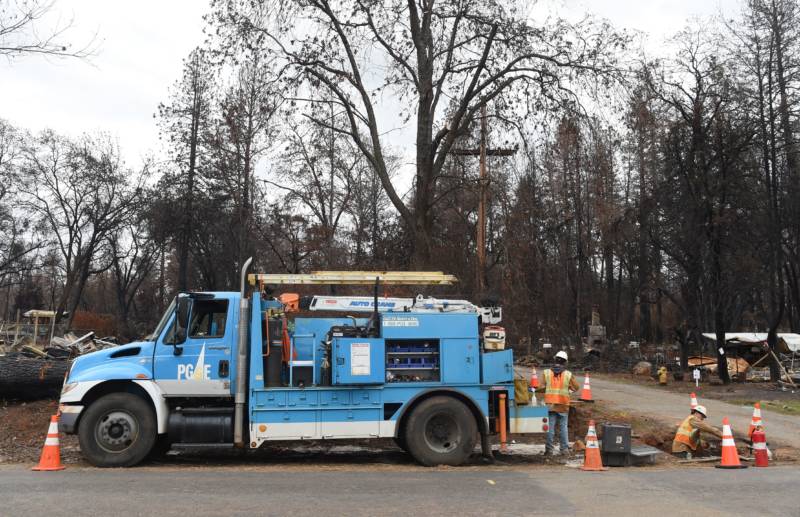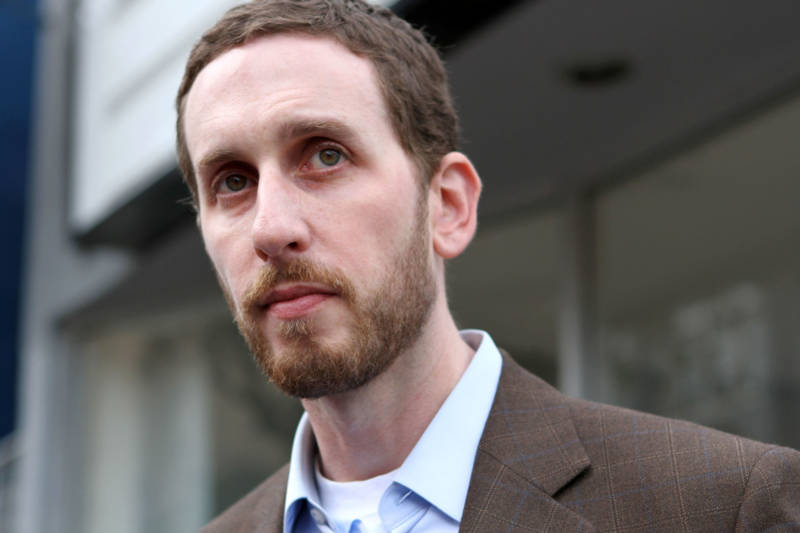State Sen. Scott Wiener will unveil legislation today to let the state of California seize control of the embattled utility PG&E.
State Senator Introduces Plan for California to Take Over PG&E

Wiener's bill, which comes one year into PG&E's bankruptcy case, would use eminent domain to force the company's stockholders to sell their shares to the state of California, which would then take over operations. Wiener said the new entity could issue bonds to pay for it.
"PG&E is a failed company — it is an irresponsibly run company," Wiener, a San Francisco Democrat, said in an interview. "It has allowed its infrastructure to completely deteriorate to the point that it is causing wildfire ... It has just allowed its system to spiral out of control."
He said PG&E has proven "over and over again" that it does not deserve its monopoly status and that by making it public and instituting new leadership, the state could make a stronger, safer and more reliable system.
"[The monopoly] is a privilege granted by the state of California. PG&E has forfeited that privilege," he said. "It is more beholden to Wall Street and the shareholders than maintaining its system and providing safe and reliable service. "
The structure of the new state-run utility would be modeled off the Long Island Power Authority in New York, Wiener said. Although the upper management would be state employees, the vast majority of utility workers would actually be employed by a newly created public benefit corporation that would be contracted by the state.
That structure would dispense with one of the biggest concerns of PG&E's 24,000 employees, Wiener explained: The vast majority wouldn't see any changes to their pensions, benefits or seniority because they still wouldn't technically be state workers.
"For me, protecting these workers is a top priority," he said. "Everything will be the same, but they will be working for a publicly owned utility instead of an investor-owned utility. I have no desire to harm the workers and we want to keep them completely whole."

Wiener said the new utility would be overseen by a seven-member board of directors that would be appointed by local governments and that the state Energy Commission would also have oversight power. The legislation will be structured to protect the state's general fund from any future liabilities, he added.
PG&E filed for Chapter 11 bankruptcy protection last January, after two years of devastating wildfires, some sparked by its own equipment, left the utility facing tens of billions of dollars in claims from fire victims. The company, which serves 16 million Californians, has been working to exit bankruptcy by this coming June. In December, it cleared its biggest hurdle: reaching a $13.5 billion settlement with wildfire survivors.
But Gov. Gavin Newsom has raised concerns about PG&E's broader restructuring plan, saying it relies too heavily on debt and won't leave the company in a strong enough financial position to do the safety work needed to avoid future blazes. Newsom has repeatedly raised the possibility of a state takeover — including in his recent budget proposal — although his office hasn't offered details of what that might look like.
It's unclear what sort of reception Wiener's proposal will get in Sacramento, but lawmakers have appeared increasingly fed up with PG&E in recent months. His idea isn't the only one out there: San Jose Mayor Sam Liccardo is leading a group of local officials interested in taking over PG&E; and in September, San Francisco offered the utility $2.5 billion to buy its infrastructure within city limits, a bid the company rejected.
Wiener said he knows there are a lot of ideas and that he "wants to make sure that public ownership is fully at the table," as those conversations play out this year.
